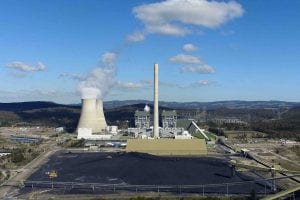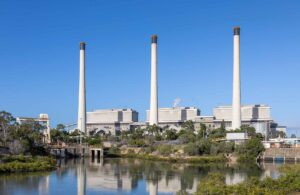The federal government’s ability to hand Adani Energy a $1 billion loan to help finance the rail link for the Carmichael coal project in the Galilee basin has been dealt a decisive blow by the emergence of a “reputation” clause that must guide the board of Northern Australia Infrastructure Facility (NAIF).
The Board of NAIF is expected to make a decision on whether to grant the funding in the next few days, but legal experts, financiers and environmental advocates argue that the existence of the reputation clause written in to the investment mandate by then resources minister Josh Frydenberg make it impossible for approval to be given.
Leading environmentalists and climate change advocates such as Tim Flannery and John Hewson says the wording of the “reputation” clause should forbid the directors from supporting the loan, particularly in light of the international climate deal, the impacts on the Greater Barrier Reef, and on water quality.
They say that Section 16 of the Investment Mandate of the NAIF, a $5 billion fund created by the Coalition government that is yet to make a single investment, is quite clear and specific:
“The Facility must not act in a way that is likely to cause damage to the Commonwealth Government’s reputation, or that of a relevant State or Territory government.”
Section 17 of the Investment Mandate also requires:
“The Facility must have regard to Australian best practice government governance principles, and Australian best practice corporate governance for Commercial Financiers, when performing its functions, including developing and annually reviewing policies with regard to:
(a) environmental issues;
(b) social issues; and
(c) governance issues”.
And Section 14 underlines the fact that the key function of the board to ensure that the NAIF operates “within the scope of the Mandate”.
Senior financiers say it is the key phrase “in a way likely to cause damage” that effectively forbids any such loans, particularly given Australia’s signing of the Paris climate treaty; the rapidly narrowing global “carbon budget” and the Carmichael mine life of 60 years; its potential impacts on the increasingly endangered and damaged Great Barrier Reef; not to mention water quality, and other environmental considerations.
Giving approval for the loan could pave the way for other Galilee Basin mines to be developed, including those owned by Gina Rinehart and GVK.
“The Australian government is committed to the Paris climate agreement of limiting warming to 2°C or less, and scientific analysis indicates that the coal of the Galilee Basin must stay in the ground if this target is to be achieved,” says Tim Flannery, chief climate councillor for the Climate Council.
“There can be no doubt that the opening of the Galilee Basin coal reserves will see the Australian government accused of hypocrisy and duplicity. It is absolutely clear, therefore, that if NAIF approves the Adani loan it will be contravening its own charter.”
Another hurdle has also emerged on the way any concessional loan would have to be treated in the federal budget.
The budget must reflect, from day 1 of the loan, the “net present value” of a concessional finance charge – that being the NPV of the difference between what a private financial institution would lend at less the government borrowing rate.
Given the 4 per cent difference between a commercial and a government loan, that would amount to around $36 million on a $900 million loan, or $380 million over 20 years if a “discount rate” of 7 per cent per annum is applied.
John Hewson, the former Liberal Party leader and chair of the Asset Owners Disclosure Project, says he “cannot imagine” that the Turnbull government would even contemplate supporting the Adani proposal.
“There is absolutely no justification for the federal government support for this project. In my AODP terms, Adani is already a ‘stranded asset’! Moreover, if NAIF were to actually support a concessional loan for this project, I believe it would be in breach of their mandate – certainly contestable in our courts.”
Controversy has raged over the Carmichael coal proposal, which is emerging as a symbol as potent as the Franklin Dam protests in the late 1970s and early 1980s.
The federal government, however, has continued to express support for the project, particularly through deputy prime minister Barnaby Joyce and his former chief of staff, the now Resources Minister Matt Canavan, even though their job estimates are grossly inflated over what Adani has told the courts.
The Queensland Labor government has offered deferral of royalty payments that could amount to around $300 million, the latest in a long list of federal and state concessions to Adani, including an unlimited water licence, relaxed rules on mining rehabilitation, intervention by Turnbull into native title laws, and weakened protections for vulnerable species.
Despite this, there are still questions about the economic viability of the project, and doubts that Adani are even serious about the project, given its struggling finances and debt burden, and questions about the potential conflicts of interest of some directors.
The “reputation” clause, however, may be the final blow to the project.
“Given the clarity of the above statements is beyond my understanding of how the Board of NAIF can conclude that the providing a subsidised loan to facilitate a project of this nature is not … in any way likely … to cause damage to the Commonwealths reputation,” said one financier.
Tim Buckley, senior analyst for IEEFA, says the reputational damage of the federal and Queensland governments from subsidising the Carmichael project would be obvious.
He says countries such as India are doing far more than their far share under the ‘common but differentiated responsibilities’ of the Paris Agreement. “Australia needs to reflect on the likely border taxes that India is already considering imposing on countries like ours that fail this test.”
Former Greens leader Christine Milne says subsidising a “carbon bomb” such as the Carmichael mine, at the same time as ratifying the Paris Agreement and agreeing to pursue a limit of 1.5°C of warming, would further erode Australia’s global reputation.
“Any decision to subsidise a loan to deliberately drive up global carbon emissions from the Galilee Basin would be in the same category as President Trump’s decision to withdraw from the Paris Agreement. Both acts are vandalism and both irreparably destroy the global reputations of their nations.”
“The international community will already be disgusted by the contempt Australia is demonstrating by even considering a subsidised loan for Opening up the Galilee Basin. No nation can expect to be respected when it says one thing and does another. Australia is risking its reputation and can expect repercussions. ”








